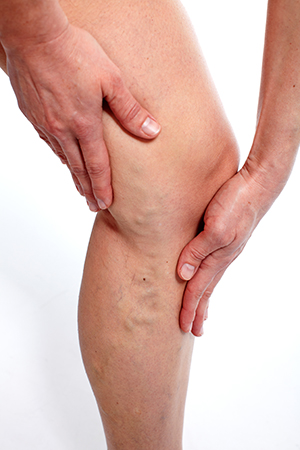 Submitted by Bohn, Nielsen, Castillo, and Wright, The Vein Specialists, LLC
Submitted by Bohn, Nielsen, Castillo, and Wright, The Vein Specialists, LLC
If you are currently suffering from varicose veins or at risk of developing them in the future, here are a few helpful answers to common questions about venous health.
Varicose veins are a common circulatory disorder, affecting as many as 23 percent of American adults. Despite its prevalence, however, many patients still have questions about them, with many patients having little understanding of their condition or possible courses of treatment. We’ll clarify some of the more common queries about varicose veins to help you better understand them.
Q: Who is at the highest risk of developing varicose veins?
A: While anyone can suffer from varicose veins, women are more likely to develop them than men. Pregnant women are at a particularly high risk. It’s also true, however, that about 42 percent of men experience venous insufficiency by the age of sixty. Regardless of their sex or age, people with a family history of varicose veins are generally more likely to develop them. In fact, if both parents have varicose veins, you are at 90 percent risk of developing varicose veins.
Q: Can spider veins turn into varicose veins?
A: In some cases, developing varicose veins can be confused with spider veins, but in general, the two conditions are unconnected. Spider veins can be caused by venous hypertension secondary to underlying venous disease.
Q: Are compression stockings an effective treatment?
A: Compression stockings can be an effective treatment for patients with varicose veins or other chronic venous insufficiency. By applying direct pressure to the varicose veins, these garments stimulate blood flow in them, reducing inflammation and pressure build-up in the varicose veins. Nevertheless, compression stockings will be ordered to complement your treatment plan. You should always ask a doctor about which type of stocking is right for you. Insurance companies will require a trial of thigh-high compression hose before authorization for treatment of your venous disease or varicose veins.
Q: If I have varicose veins, should I change how I exercise?
A: While greater weight can put increased stress on veins, not all forms of exercise benefit your veins. Walking, swimming, stationary biking, and other gentler, low-impact activities are best, since they place the least amount of pressure on veins. In contrast, heavy weight lifting can sometimes overstress your veins.
Q: Will one procedure eliminate my varicose veins?
A: A venous procedure such as a vein ablation can successfully eliminate or greatly diminish varicose veins with a high success rate of 95 to 100 percent. The type of treatment will determine your success rate. Vein stripping, for example, has proven much less effective than newer techniques like ablation and sclerotherapy.
Q: What will happen if I leave my varicose veins alone?
A: When left untreated, varicose veins can result in skin ulcers, blood clots, increased pain and swelling, and even deep vein thrombosis (DVT). It’s best to treat varicose veins as soon as possible to avoid these costly and, in the case of DVT, potentially life-threatening complications.
If you have further questions or are currently looking for treatment, contact The Vein Specialists at 309-862-4000 to schedule a consultation with one of their physicians or request an appointment online at www.ILveins.com. They have convenient locations at 3302 Gerig Drive in Bloomington or 2011 Rock Street, Suite D2 in Peru.

